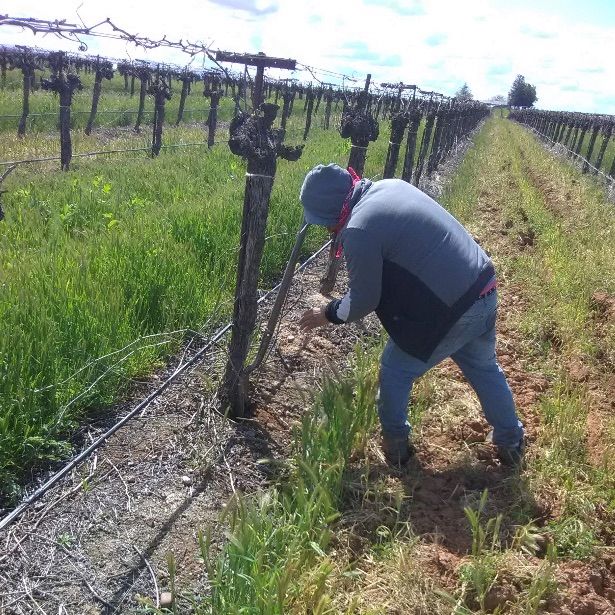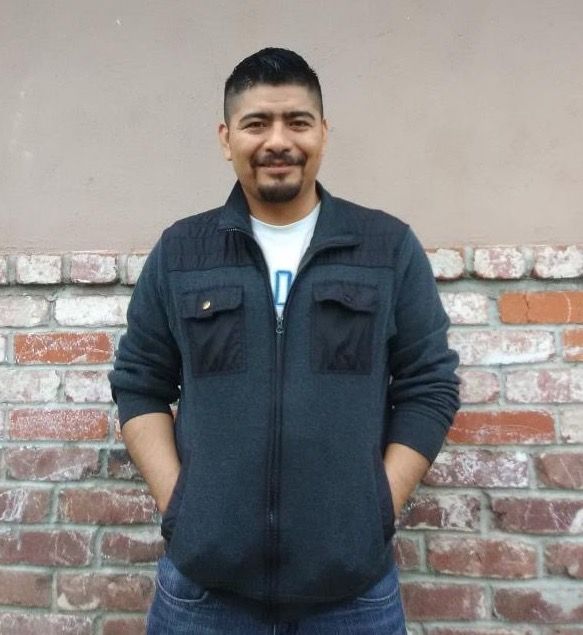Not even her US-born children were considered for the economic stimulus check
Despite the fear of getting the coronavirusJosé Luis Hernández has not missed a day working the vineyards in Northern California.
"I leave my house at four-thirty in the morning, drive almost an hour to get to work and start at 5:45 a.m.," he says.
Before the pandemic, this 32-year-old Oaxacan immigrant went to the ite de raite ’vineyards in a vehicle full of farm workers.
"When the emergency was declared, for safety, I decided to go alone driving in my car. I am spending more, and although gasoline is very cheap, it is still money that can be used to feed my family. ”

José Luis has been working in the field for 12 years. His wife also worked in agriculture, but when COVID-19 started and the schools closed, he had to leave his job to take care of his nine, six and two-year-old children.
As a result, the only income in the Los Hernández home is provided by José Luis. "We have not seen them hard because my wife's salary is necessary to complete for the expense, but someone had to take care of the children."
He says that even the first weeks of the pandemic, his work hours were cut. “We work normally from Monday to Saturday. But at the beginning they took us away on Saturdays. Now that the work has come, we have regularized the schedule. "
Still, he says that in May, he struggled to pay the rent. "I don't know where the money came from, but we managed to cover it because if we don't do it on time, each day of delay is an extra charge of $ 75 ”.

Before the coronavirus, José Luis's wife, in addition to working in the fields, made tamales to sell, and stood in a corner. "He had to stop his sales for fear of becoming infected."
With children at home without going to school, she says they increased expenses for food.
The stress caused by the economic limitations brought about by the virus has gone hand in hand with the fear that José Luis feels of getting infected. “I protect myself at work by covering my mouth and nose with a bandana. My job right now is to clean the weed plant. Each worker has his own line. There is no risk there. ”
However, he says that the danger is in the bathrooms where you cannot keep social distance, or in the lines that are made to wash your hand.
"Some do not believe that the coronavirus is a real disease; Others think that they cannot hit them. Each head is a world".

In addition, he says that for many employers, farm workers are disposable. "They don't care about our health. They don't give us masks or gloves. ”
Even though you take all possible precautions not to get infected, you acknowledge that you are afraid of COVID-19. "Especially since I suffer from allergies. They give me headaches and a burning throat. And now is when there is more dust in the field ”.
José Luis is mainly concerned about his children. "What they want is to eat. They don't know where the money comes from. They want their fruit. And they ask why we no longer go out as a family to buy; or why I always go to the store alone. Why we don't even go to church anymore to mass. We have been several months. You get uncomfortable, how do you explain to a child what is happening ",
He – he says – who responds to his children: "staying at home is for the good of all, and this will happen."

During this health crisis, farm workers have been considered essential and have even called them heroes, but that bothers José Luis.
“Due to not having a status, we were not taken into account in the supports given. We declare and pay taxes on everything we buy. Why don't they take us into account? ”He asks.
He says that his children are US citizens. "If they don't give us, children born in this country should be considered. They also deal with aid. ”
What hurts him most is that he says that he has not seen any mayor, politician or official go to the fields to thank them for not missing a day to plant and lift the food that is brought to their table.
"That is the trouble. In the future when everything returns to normal, they will forget about us. ”
And ask them not to forget that this disease has no barriers, it does not matter if you have documents, if you are a foreigner, citizen, resident. "It comes to you regardless of immigration status"









